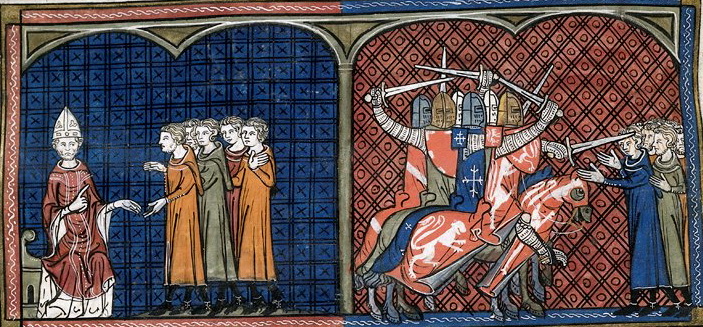
Posted by Gregory Lippiatt
8 March 2021Have you ever come across mysterious references to medieval heretics and their violent repression and wished to know more? Have you ever wondered about those signs welcoming you to the pays cathare as you travel through the south of France?
If so, you may be interested in my recent conversation with Dr Sophie Ambler of Lancaster University for the Centre for War and Diplomacy. Dr Ambler and I discussed the Albigensian Crusade (1208–1229) that was called to exterminate heresy from the Midi and why an armed campaign under the sign of the cross was believed an appropriate remedy to the perceived problems of the region. We also talked about my work on Simon of Montfort, the captain of the first phase of the crusade and until his death before the walls of Toulouse in 1218.
A defining moment in Simon’s assumption of princely power in the region was the promulgation in 1212 of the Statutes of Pamiers, a set of customs for the reform of the Midi. Dr Ambler and I question whether this really was a simple exercise in northern French colonialism, as the Statutes have often been understood, or if it reflected a deeper commitment to good government. What does the combination of violence, persecution, justice, and reform tell us about the way authority and order were imagined in the Middle Ages?

I hope this podcast episode may challenge some of our assumptions around these issues generally and the Albigensian Crusade in particular; do let us know what you think in the comments!
Header image: London, British Library, ms. Royal 16 G VI, fol. 374v